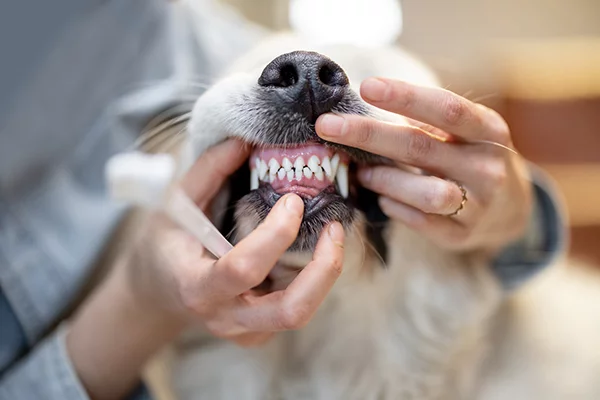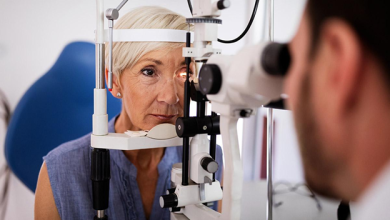Pearly Whites for Paws: Why Pet Dental Care Matters

As a loving pet owner, ensuring your furry friend’s overall health and happiness is a top priority. However, one crucial aspect of their well-being is often overlooked: dental care. Just like humans, pets require regular dental attention to prevent painful oral issues, promote fresh breath, and maintain overall health. Dental problems can lead to serious systemic diseases, affecting your pet’s quality of life and even lifespan. In fact, studies show that up to 85% of pets develop periodontal disease by the age of three, highlighting the urgent need for proactive dental care at the pet clinic in Murrieta, CA.
By understanding the importance of dental health and implementing simple yet effective care routines, you can significantly improve your pet’s comfort, nutrition, and overall well-being.
Why does dental care matter for pets?
Dental care is vital for pets for several reasons:
Prevents Oral Pain and Discomfort
- Reduces risk of tooth abscesses and gum infections
- Prevents bad breath (halitosis)
- Relieves dental pain and sensitivity
Promotes Overall Health
- Reduces risk of systemic diseases (e.g., kidney disease, heart disease)
- Prevents bacterial spread to other organs (e.g., liver, lungs)
- Supports nutritional health and digestion
Supports Quality of Life
- Improves appetite and eating habits
- Enhances energy levels and overall well-being
- Boosts confidence and social interaction
Reduces Risk of Serious Health Issues
- Periodontal disease (gum disease)
- Tooth loss and dental fractures
- Oral cancer and tumors
- Kidney disease and renal failure
- Heart disease and cardiac issues
Economic Benefits
- Reduces veterinary costs associated with dental emergencies
- Prevents costly surgical procedures (e.g., tooth extractions)
- Saves money on food and treats due to improved digestion

Strengthens Bond Between Pet and Owner
- Improves pet’s overall behavior and temperament
- Enhances trust and interaction between pet and owner
- Supports a healthy and happy relationship
Other Important Reasons
- Prevents bad breath and gum recession
- Supports dental development in puppies and kittens
- Helps identify underlying health issues through dental exams
- Enhances overall mental health and well-being
What are the common dental issues in pets?
Pets can be afflicted with the following dental problems:
- Periodontal Disease: Gum disease caused by plaque and tartar buildup.
- Tooth Decay: Bacterial infection leading to tooth damage.
- Gingivitis: Inflammation of the gums.
- Tooth Loss: Loss of teeth due to decay, gum disease, or injury.
- Oral Cancer: Cancer affecting the mouth, tongue, or lips.
What are some essential dental care practices for pets?
Here are essential dental care practices for pets:
Daily Care
- Brushing: Use a pet-specific toothbrush and toothpaste.
- Dental Chews: Provide dental chews or toys to remove plaque.
- Dental Diets: Feed dental-specific foods.
Regular Care
- Veterinary Dental Exams: Schedule annual or bi-annual exams.
- Professional Cleanings: Ultrasonic cleanings every 6-12 months.
- Dental X-Rays: Evaluate tooth health.
Additional Tips
- Start Early: Introduce dental care at 3-4 months.
- Be Patient: Gradually introduce dental care routines.
- Use Positive Reinforcement: Reward good behavior.
- Monitor Oral Health: Regularly inspect teeth and gums.
- Adjust Diet: Feed dental-friendly foods.
Brushing Techniques
- Use gentle circular motions.
- Focus on areas where teeth and gums meet.
- Brush all surfaces (front, back, top).
Veterinary Dental Care
- Dental Exams: Regular dental exams to identify potential issues.
- Dental X-rays: X-rays to evaluate tooth health and detect hidden problems.
- Professional Cleanings: Ultrasonic cleanings to remove tartar and plaque.
- Tooth Extractions: Surgical removal of damaged or infected teeth.
- Dental Surgery: Surgical procedures to repair or reconstruct dental structures.
Frequency of Dental Care
- Puppies/Kittens: Every 3-4 months
- Adult Dogs/Cats: Every 6-12 months
- Senior Pets: Every 3-6 months
Bottom line
Dental care is a crucial aspect of pet ownership, and neglecting it can lead to severe consequences. By understanding the importance of dental care, implementing best practices, and partnering with your veterinarian, you can ensure your pet’s oral health and overall well-being.





